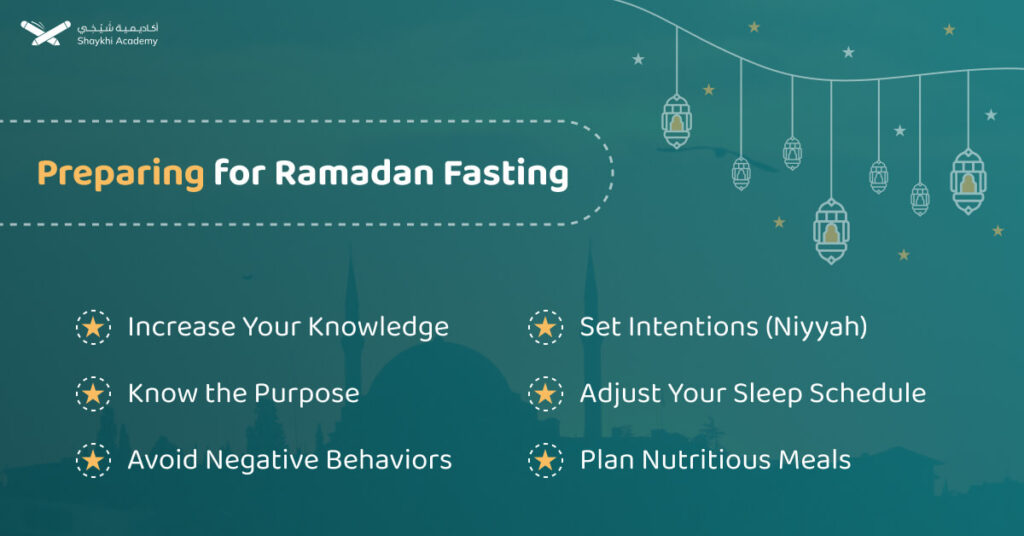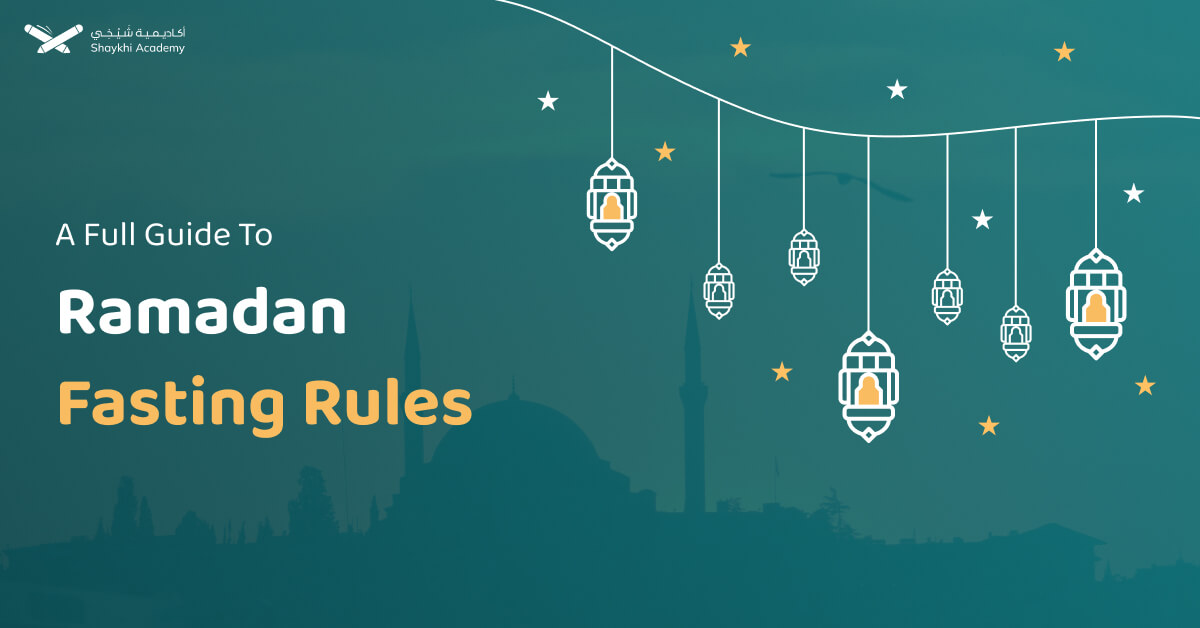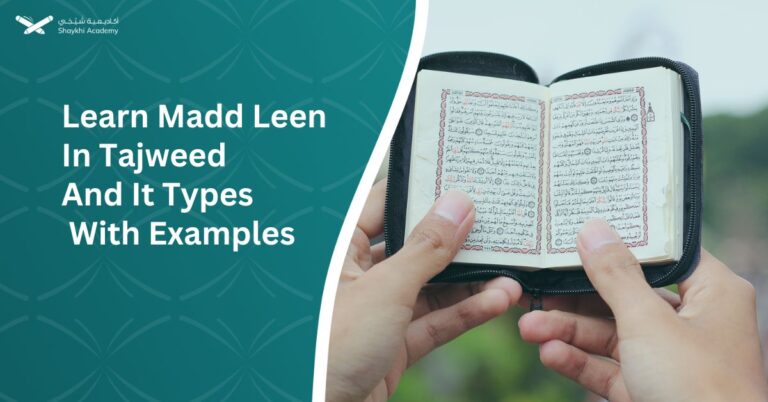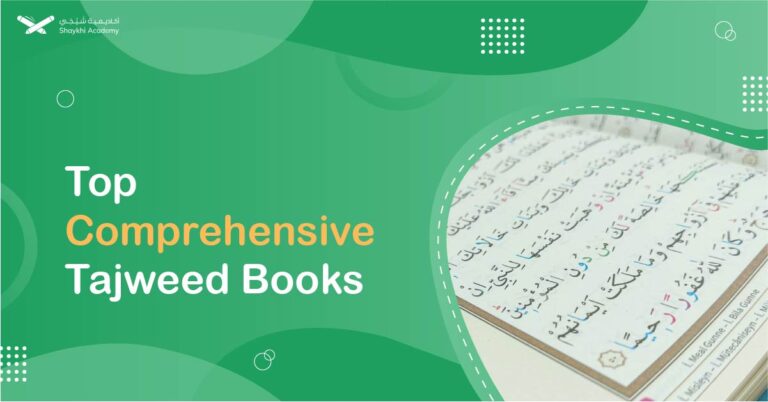Embarking on the sacred journey of Ramadan fasting, also known as Sawm, entails adhering to essential rules and principles deeply rooted in Islamic tradition. As one of the Five Pillars of Islam, Ramadan fasting holds profound religious and spiritual significance for Muslims worldwide. This comprehensive guide explores the intricacies of Ramadan fasting, shedding light on its purpose, rules, exemptions, and practical aspects. From understanding the obligations of fasting to the acts of breaking the fast and making up missed days, this article offers valuable insights to aid in observing Ramadan with devotion and reverence.
In a nutshell, Ramadan fasting is a fundamental practice in Islam where healthy adult Muslims abstain from food, drink, smoking, and sexual relations from dawn to sunset during the month of Ramadan. This spiritual observance fosters self-discipline, empathy, and increased devotion to Allah. Fasting begins at dawn (Fajr) and ends at sunset (Maghrib), with exceptions for certain groups such as children, elderly, and travelers.
The purpose of fasting includes spiritual growth, empathy for the less fortunate, and strengthening community bonds. It’s essential to understand the rules, make intentions (Niyyah), plan meals, and engage in spiritual practices during Ramadan.
What is Ramadan Fasting?
Ramadan fasting, also known as Sawm, is one of the Five Pillars of Islam – the core practices of the religion. It involves abstaining from food, drink, smoking, and sexual relations from dawn (Fajr) to sunset (Maghrib) each day for the entire month of Ramadan.
Fasting during Ramadan is not just about physical abstinence; it’s a holistic practice that encourages spiritual growth, self-restraint, empathy for the less fortunate, and increased devotion to Allah.
Is Fasting During Ramadan Mandatory?
Yes, fasting furing Ramadan is mandatory. Ramadan fasting is one of the Five Pillars of Islam, making it obligatory for all healthy adult Muslims. However, exceptions are granted to those who are unable to fast due to valid reasons, as mentioned earlier (children, sick, travelers, etc.).
It’s important to note that obligatory practices in Islam come with exemptions based on specific circumstances. If you have any doubts or concerns about your ability to fast, it’s always best to consult with a knowledgeable Imam or Islamic scholar.
Allah, the Exalted, Says: “The month of Ramadan [is that] in which was revealed the Qur’an, a guidance for the people and clear proofs of guidance and criterion. So whoever sights [the new moon of] the month, let him fast it; and whoever is ill or on a journey – then an equal number of other days. Allah intends for you ease and does not intend for you hardship and [wants] for you to complete the period and to glorify Allah for that [to] which He has guided you; and perhaps you will be grateful.” (Al-Baqarah 2:185).
When Does Fasting for Ramadan Start?
Ramadan fasting begins with the sighting of the new moon, marking the start of the lunar month. The exact timing may vary based on geographical location and local moon sighting committees. Typically, the first day of fasting is announced after the moon sighting on the 29th day of the preceding month, Sha’ban.
In 2024, the anticipated first day of Ramadan is expected to be around March 11th, but the confirmation will depend on moon sighting.
When Does Ramadan Fasting Start at Fajr or Sunrise?
Fasting begins at Fajr, the fasting period begins at Fajr (dawn), which is the first appearance of light in the eastern horizon before sunrise.
While sunrise itself might be a more noticeable visual cue, the official start of the fast is determined by Fajr. Most Islamic calendars or online resources will have specific Fajr timings for your location.
“And eat and drink until the white thread of dawn becomes distinct to you from the black thread [of night].” [Al-Baqarah 2:187].
Ramadan Fasting Rules Time
The core timeframe for fasting during Ramadan is between Fajr (dawn) and Maghrib (sunset). This period can vary in length depending on your location and time of year.
In some parts of the world during Ramadan, the fasting window might be quite short (a few hours), while in others, it can be considerably longer (up to 18 hours or more).
When Can You Break Fast During Ramadan?
The Ramadan fast can be broken only after sunset (Maghrib). This is typically marked by the call to prayer (Adhan) for Maghrib.
It’s important to wait until the Adhan confirms sunset and avoid breaking the fast prematurely based on estimations or slight variations in light.
What Breaks the Fast?
Several actions invalidate the fast during Ramadan, including consuming food or drink, smoking or using tobacco, engaging in sexual activity, intentional vomiting, menstruation or postpartum bleeding for women, intentional injections providing nourishment or medication, deliberately swallowing objects. It’s crucial to avoid these actions to maintain the validity of the fast and uphold the spiritual significance of Ramadan fasting.
Is Ramadan Intermittent Fasting?
No, Ramadan fasting is not intermittent fasting. While Ramadan fasting involves abstaining from food and drink for a specific period (dawn to sunset), it doesn’t strictly fall under the category of intermittent fasting as practiced in some health and wellness regimens. Intermittent fasting typically involves alternating cycles of eating and fasting throughout a 24-hour period.
Essential Rules of Ramadan Fasting
Here’s essential rules of Ramadan fasting that ensure the faithful observance of Ramadan fasting as prescribed by Islamic teachings. The requirements for Ramadan fasting mandate abstaining from dawn to sunset for healthy adults, with exemptions for certain groups. Consuming food, drink, or engaging in specific activities breaks the fast. Unintentional actions don’t invalidate it, but deliberate ones do. Those exempted must compensate for missed fasts later.
Who should fast?
Fasting is obligatory for all healthy adult Muslims. However, exceptions are made for children, the elderly, travelers, and those who are sick.
How long is fasting?
The fast begins at dawn (Fajr) and ends at sunset (Maghrib) each day. The exact timings for these can be found in local Islamic calendars or online resources.
What actions invalidate the fast?
Consuming any food or drink, including water, smoking cigarettes or using any form of tobacco, and engaging in sexual activity all invalidate the fast.
What If a person forgets they are fasting and eats or drinks unintentionally?
If a person forgets they are fasting and eats or drinks unintentionally, their fast remains valid. They simply need to abstain from that point onwards.
Are there exemptions from fasting?
Yes, certain groups are exempt from fasting during Ramadan. These include children who have not reached puberty, menstruating women, the elderly or chronically ill, and travelers on long journeys.
What should one do if they miss a fast due to a valid reason?
If a person misses a fast due to a valid reason, such as illness or travel, they are required to make it up later by fasting an equal number of days after Ramadan. It is important to fulfill missed fasts as soon as possible after Ramadan concludes.
Can someone who is sick or traveling fast during Ramadan?
Yes. While fasting is obligatory for healthy adult Muslims, those who are sick or traveling have the option to either fast or break their fast and make up for the missed days later. It is recommended to assess one’s health and circumstances to determine the best course of action.
Additional Notes:
- It is recommended to have a pre-dawn meal (Suhoor) before Fajr and break the fast (Iftar) immediately after sunset with dates and water, followed by a full meal.
- Muslims are encouraged to increase their prayers, recitation of the Quran, and charitable acts during Ramadan.
- Avoidance of gossip, arguing, and negative thoughts are also emphasized during the holy month.
The Purpose of Fasting During Ramadan
The purpose of fasting in Ramadan goes beyond just physical abstinence. It’s a multifaceted practice encompassing fostering spiritual growth, personal development, and social connection:
1. Spiritual Growth:
Fasting allows Muslims to focus on their relationship with Allah, free from worldly distractions like hunger and thirst. It fosters self-discipline, patience, and gratitude for Allah’s blessings.
2. Developing Empathy:
By experiencing hunger and thirst firsthand, Muslims can gain a deeper understanding of the struggles faced by the less fortunate. This promotes compassion and encourages acts of charity during Ramadan.
3. Strengthening Community:
Ramadan is a time for Muslims to come together for prayers, communal meals (Iftars), and social gatherings. This strengthens the bonds of community and fosters a sense of belonging.
4. Strengthening Willpower:
The act of abstaining from basic needs strengthens a Muslim’s willpower and self-control, which can be applied to other areas of life.
Why Do Muslims Fast During Ramadan?
There are several reasons why Muslims fast during Ramadan, as discussed earlier:
- Following the Command of Allah: Fasting is a divine command from Allah, mentioned in the Quran as a way to increase piety and devotion.
- Commemorating the Revelation of the Quran: Ramadan is the month in which the first verses of the Quran were revealed to Prophet Muhammad (PBUH).
- Spiritual Growth: As mentioned previously, fasting allows for self-reflection, strengthens willpower, and fosters a deeper connection with Allah.
- Empathy and Charity: By experiencing hunger and thirst, Muslims gain a deeper understanding of the struggles faced by the less fortunate, promoting compassion and encouraging acts of charity.
- Forgiveness and Renewal: Ramadan is seen as a time for seeking forgiveness from Allah and renewing one’s faith and commitment to Islam.
Preparing for Ramadan Fasting
Prepare for Ramadan fasting by increasing your knowledge of its rules. Set your intention (Niyyah) before starting the fast. Adjust your sleep schedule for Suhoor and plan nutritious meals for both Suhoor and Iftar. These steps will help ensure a successful fasting experience during Ramadan. Here are some tips to help you prepare for a successful Ramadan fast:
1. Increase Your Knowledge
Familiarize yourself with the rules and guidelines of Ramadan fasting through reliable Islamic sources like hadiths (sayings of Prophet Muhammad – peace and blessings of Allah be upon him) and scholarly interpretations.
2. Know the Purpose
Understanding the deeper significance of Ramadan fasting, from seeking Allah’s pleasure to fostering empathy for the less fortunate, enhances your motivation and commitment.
3. Avoid Negative Behaviors:
Fasting goes beyond food and drink. Abstain from gossip, arguing, negative thoughts, and other behaviors that can diminish the spiritual essence of the fast.
4. Set Intentions (Niyyah)
Before starting the fast, make a clear intention (Niyyah) in your heart to fast for the sake of Allah.
5. Adjust Your Sleep Schedule
Since Suhoor is eaten before dawn, gradually adjust your sleep schedule to wake up earlier for pre-dawn meals.
6. Plan Nutritious Meals
- Suhoor: Focus on complex carbohydrates, lean proteins, and healthy fats for sustained energy throughout the day. Dates, whole-wheat bread, eggs, and yogurt are excellent Suhoor options. Anas reported God’s messenger as saying, “Take a meal a little before dawn, for there is a blessing in taking a meal at that time.” (Bukhari and Muslim).
- Iftar: Break your fast with dates and water, followed by a balanced meal rich in nutrients. Prioritize fruits, vegetables, whole grains, and lean protein sources.
- Hydration: While you can’t drink water during fasting hours, maximize your hydration before dawn and after sunset.
7. Manage Your Energy Levels
Listen to your body and adjust your activities accordingly. Prioritize rest, especially during the hottest parts of the day, and avoid strenuous physical activity.
8. Prioritize Spiritual Practices:
- Increase Prayers: Ramadan is a time to strengthen your connection with Allah through increased prayers like Taraweeh prayers offered in mosques at night.
- Recitation and Reflection: Dedicate time each day to reciting the Quran and reflecting on its meaning.
- Charity and Good Deeds: Increase your acts of charity and good deeds. Donate to those in need, volunteer your time, and spread kindness.

Additional Tips:
- Seek Knowledge: Attend lectures offered by mosques or Islamic centers to gain deeper insights into Ramadan and its significance.
- Fasting with Family: If you have children who are not yet obligated to fast, involve them in Ramadan activities like preparing Suhoor and Iftar meals, learning about the significance of the month, and participating in charitable acts.
- Community Support: Surround yourself with supportive friends and family who are also fasting. Participate in communal Iftar meals and gatherings to strengthen your sense of community.
How to Do Ramadan Fasting?
Observing Ramadan fasting can be a spiritually enriching experience when approached with mindfulness and preparation. Here are some tips to help you make the most of your fasting experience:
- Set Intentions: Begin each fasting day with a sincere intention (niyyah) to fast for the sake of Allah.
- Eat Nutritious Suhoor: Start your day with a balanced pre-dawn meal to sustain energy.
- Stay Hydrated: Drink plenty of water between Iftar and Suhoor to prevent dehydration.
- Mindful Eating: Break your fast with dates and water, followed by a balanced meal to avoid overeating.
- Prioritize Spiritual Practices: Focus on Quran reading, extra prayers, and seeking forgiveness.
- Practice Self-Discipline: Use fasting as an opportunity to cultivate self-control and patience.
- Consider Health: Consult a healthcare professional if you have health concerns.
- Stay Active: Incorporate light exercise into your routine to maintain energy levels.
- Seek Support: Connect with family, friends, and community for encouragement and support.
- Reflect and Renew: Use Ramadan for self-reflection, seeking forgiveness, and setting personal goals.
Hadith on Fasting in Ramadan
Hadiths, sayings and teachings of Prophet Muhammad (PBUH), provide further insights into the importance and practices of Ramadan fasting. Here’s a relevant Hadith:
The Messenger of Allah (ﷺ) said, “Allah the Exalted and Majestic said: ‘Every act of the son of Adam is for him, except As-Siyam (the fasting) which is (exclusively) for Me, and I will reward him for it.’ Fasting is a shield. When anyone of you is observing fast, he should neither indulge in obscene language nor should he raise his voice; and if anyone reviles him or tries to quarrel with him, he should say: ‘I am fasting.’ By Him in Whose Hand the soul of Muhammad is, the breath of one observing Saum is sweeter to Allah than the fragrance of musk. The one who fasts, experiences two joys: he feels pleasure when he breaks the fast. He is joyful by virtue of his fast when he meets his Rubb.” [Al-Bukhari and Muslim].
This Hadith emphasizes the protective and spiritually rewarding nature of fasting during Ramadan.
Niyyah for Fasting in Ramadan
Niyyah, or intention, is an essential aspect of Islamic practices, including fasting. Before commencing the Ramadan fast, make a clear and sincere intention (Niyyah) in your heart to fast solely for the sake of Allah.
This Niyyah can be a simple statement like, “I intend to fast tomorrow for the holy month of Ramadan, solely for the sake of Allah.”
The act of setting your intention reinforces the spiritual purpose of fasting and strengthens your commitment to observing the fast.
‘Umar b. al-Khattab, for whom God’s good pleasure is prayed, reported God’s Messenger, to whom may God’s blessings and safe-keeping be granted, as saying:
“Deeds are to be judged only by intentions, and a man will have only what he intended. When one’s emigration is to God and His Messenger, his emigration is to God and His Messenger; but when his emigration is to a worldly end at which he aims, or to a woman whom he marries, his emigration is to that to which he emigrated.” (Bukhari and Muslim.)
Make Ramadan 2024 Your Quranic Turning Point with Shaykhi Academy!
Are you seeking the finest Quranic education right from the comfort of your home? Look no further! Shaykhi Academy stands out as a premier online Quran learning platform, dedicated to providing exemplary education to both children and adults.
Why Choose Shaykhi Academy?
- Connect with highly qualified native tutors.
- Flexible scheduling to suit your busy lifestyle.
- Affordable classes tailored for all levels.
- Accessible from anywhere around the globe.
Discover Our Range of Courses:
- Arabic Noorani Qaida: Lay a solid foundation for Quranic studies.
- Online Quran Classes for Kids: Engaging lessons for lifelong learning.
- Tajweed Rules for Kids: Learn to recite with confidence.
- Quran Hifz for Kids: Step-by-step guidance to memorize the Quran.
- Quran for Adults: Introduce yourself to Quran reading and Tajweed rules.
- Online Arabic Courses: Master the language of the Quran.
- Islamic Studies: A wide range of topics related to Islam, including theology, law, Quranic studies, Hadith.
Don’t let this Ramadan pass you by!
This Ramadan, empower yourself and your loved ones with the gift of Quranic knowledge.
Shaykhi Academy can guide you! Book your free trial now and make Ramadan 2024 your Quranic turning point!
Conclusion
In conclusion, Ramadan fasting, one of the Five Pillars of Islam, is a sacred practice observed by Muslims worldwide. It involves abstaining from food, drink, smoking, and other specified actions from dawn until sunset throughout the month of Ramadan.
This spiritual endeavor fosters self-discipline, empathy, and a deeper connection with Allah. Understanding the rules, exemptions, and intentions (Niyyah) for fasting is essential for a meaningful Ramadan experience.
As Muslims embark on this spiritual journey, they strive to uphold the integrity of their fasts and engage in acts of worship, reflection, and charity. By adhering to the guidelines and embracing the spiritual significance of Ramadan, Muslims seek spiritual growth, forgiveness, and renewal during this blessed month.




















